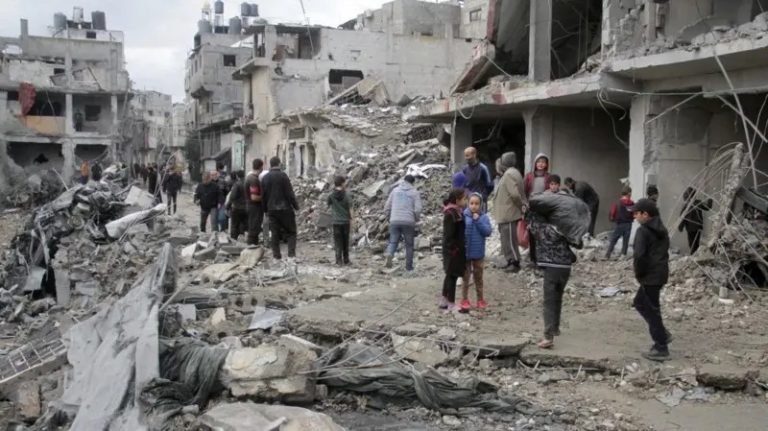GAZA, (The Palestine Foundation Pakistan)
A new set of UN findings has revealed a catastrophic collapse in Gaza’s development and economy, warning that the Israeli genocide has wiped out nearly seven decades of progress and pushed the territory to the brink of non-existence.
Francesca Albanese, the UN special rapporteur on human rights in the occupied Palestinian territory, said a fresh UN report shows the scale of destruction unleashed since the Israeli genocide began in October 2023.
Albanese wrote on X that the devastation amounts to “the worst economic collapse ever recorded,” stressing, “This is not a war. It is genocide.”
The report, issued by the UN Conference on Trade and Development (UNCTAD), concludes that 69 years of human-development gains have been erased as health systems, schools, housing, infrastructure and even banking networks were destroyed.
According to the summary published by Albanese, the devastation “unleashed consecutive economic, humanitarian, environmental and social crises, pushing the occupied Palestinian territory from under-development into complete ruin.”
UNCTAD warns that rebuilding Gaza will require more than $70 billion and may take decades, a process that will leave the Strip dependent on large-scale, sustained international support. Even under optimistic projections of double-digit economic growth and substantial external aid, Gaza would still need many decades to regain the basic living standards it had before October 2023.
The report also finds that Gaza’s economy shrank by an unprecedented 87 percent between 2023 and 2024, driving per-capita GDP down to just $161, one of the lowest figures ever recorded globally. Every essential pillar of survival, food, shelter and healthcare, has collapsed, pushing Gaza to what the UN describes as “the edge of total breakdown.”
UNCTAD stresses that the destruction and blockade have generated “one of the ten worst economic crises in the world since 1960.”
The agency calls for an immediate, large-scale international intervention, including coordinated financial assistance, the easing of movement and trade restrictions, the resumption of financial transfers, and the introduction of an emergency basic-income program providing unconditional monthly payments to every person in Gaza.
According to Gaza’s Ministry of Health, whose figures the UN considers reliable, at least 69,756 Palestinians, most of them women and children, have been killed by Israeli airstrikes and ground operations.
The razing of neighborhoods and the collapse of food systems have produced a famine in several areas, while the systematic destruction has ignited overlapping economic, humanitarian, environmental and social disasters.
The report further notes that while the situation in the occupied West Bank has not yet reached the same level of devastation, it is rapidly deteriorating.
Accelerating settler violence, expanding settlements, movement restrictions on workers and sustained Israeli raids have triggered what the UN calls “the worst economic downturn since data collection began in 1972.” Several areas, including al-Khalil, remain under extreme pressure from settler expansion and military incursions.
UNCTAD urges a comprehensive rescue plan to prevent Gaza’s collapse and to ensure that the territory can one day rebuild itself into a livable society.











